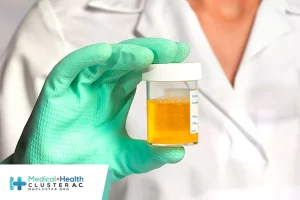CONDENA MH CLÚSTER ATAQUE ARMADO A HOSPITAL ARCÁNGELES
Leer más
CDC: COVID-19 Vaccines 66% Effective Against Delta Variant

Vaccine effectiveness against COVID-19 infection dropped from about 91% to 66% once the Delta variant became the dominant strain in the U.S., according to a new study published Tuesday by the CDC.
The decline points to the highly contagious nature of the Delta variant and underscores the importance of vaccination to prevent severe disease, hospitalization and death, the study authors wrote.
“While we did see a reduction in the protection of the COVID-19 vaccine against the Delta variant, it’s still two-thirds reduction of risk,” Ashley Fowlkes, the lead author and an epidemiologist for the CDC’s COVID-19 Emergency Response, told CNN.
The latest update is part of an ongoing study that follows health care workers, first responders and essential workers who undergo weekly testing in eight locations across six states. The weekly testing helps researchers to better track the rates of people who develop mild or no symptoms and may be less likely to get tested overall, CNN reported.
Among the 4,217 participations, 3,483 — or 83% — were vaccinated. About 65% received the Pfizer vaccine, 33% received the Moderna doses and 2% received the Johnson & Johnson shot. Between December 2020 and April 2021, the vaccines were about 90% effective in preventing symptomatic and asymptomatic infections.
Between April and August, the Delta variant became more dominant and the efficacy began to drop, though there were still few infections. Researchers found 19 infections among 488 unvaccinated people, and about 95% were symptomatic. They also found 24 infections among 2,352 fully vaccinated people, and 75% were symptomatic. The study didn’t include details about the type or severity of symptoms.
“It’s still a very powerful vaccine,” Fowlkes told CNN. “But we are also looking towards continuing to use masks for a little bit longer.”
The study team is planning future analyses that compare the different COVID-19 vaccines and the types of symptoms that vaccinated and unvaccinated people experience, CNN reported.
On Wednesday, Johnson & Johnson reported that a second dose of its vaccine raises antibody levels against the coronavirus. When participants received a booster shot at six months, their spike-binding antibodies increased about nine times higher than after the first dose, the company wrote in a statement.
Johnson & Johnson will submit the data to the FDA, which is evaluating similar studies from Pfizer and Moderna. The FDA could authorize booster shots for Americans in September, which could be available to people eight months after their last vaccination, according to The New York Times .
The Johnson & Johnson researchers also found that the booster shot increased the supply of immune cells in the body, which can attack the cells infected with the coronavirus. Those results are still being prepared for publication, the newspaper reported.
As studies continue, vaccine companies are still determining how long the increased antibody levels last after a booster shot.
“We don’t have long-term human studies, but my prediction would be that those responses should be maintained after the boost,” Lynda Coughlan, a virologist at the University of Maryland School of Maryland who isn’t involved with these studies, told The New York Times.
https://www.medscape.com/viewarticle/957235?src=soc_fb_210826_mscpedt_news_mdscp_vaccine&faf=1#vp_1
Créditos: Comité científico Covid




